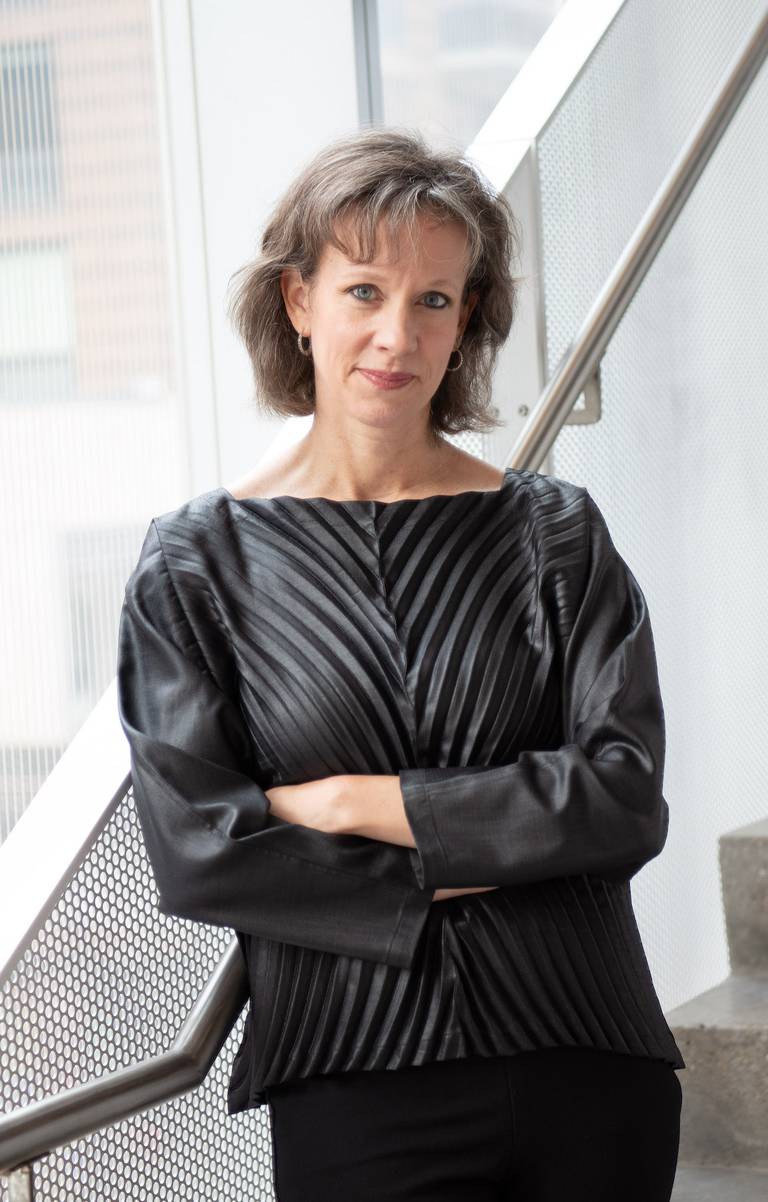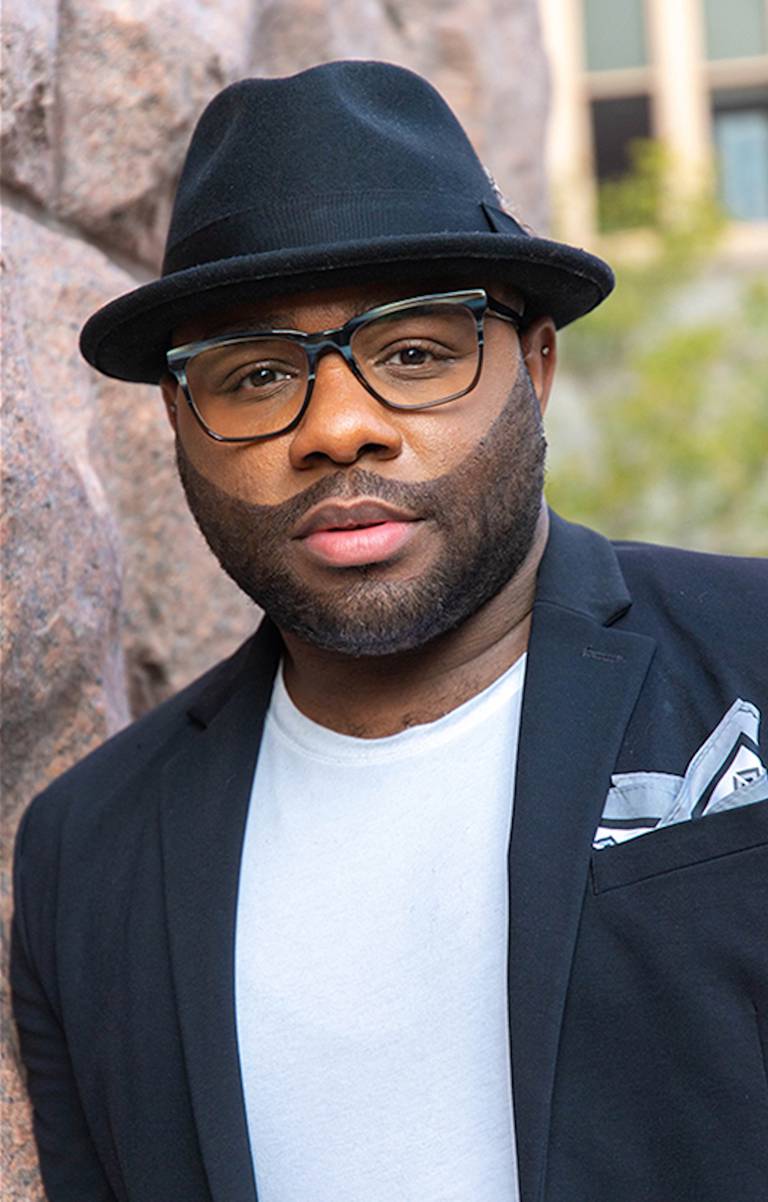
Education is regularly cited as the key starting point in tackling the fashion industry’s failings in diversity, equity and inclusion (DEI), whether the education of consumers or employees, c-suite executives or entry-level talent.
The next generation of fashion professionals are entering the workplace with increasingly high expectations of their employers around the prioritisation of DEI within their business. A 2020 survey of new graduates by the National Association of Colleges and Employers (NACE) saw over 79 percent of respondents call diversity in the workforce “very important”, while a 2020 Glassdoor survey found 76 percent of employees and job seekers reported a diverse workforce was important when evaluating companies and job offers.
Indeed, outside of the moral need for improved equity and inclusion, a business case for diversity is undeniable — a McKinsey and Co. report in 2020 found businesses with the most gender and ethnic diversity financially outperformed the least diverse by 25 and 36 percent respectively.
Recognising the need to start education on DEI from the start of fashion professionals’ journey, the fashion department of Columbia College Chicago is seeking to integrate DEI across its programmes and extracurricular activities.
The department has created DEI-designated courses for their two core programmes — Fashion Design BFA and Fashion Studies BA with concentrations in merchandising or product development — and more recently into the newly launched Sustainable Fashion minor. The department, which received the school’s internal Diversity, Equity and Inclusion Teaching Activism Award, is pursuing DEI designation for every course in the department’s core curriculum.
The school also now offers a reverse mentoring programme, in which faculty can request to be mentored in a DEI topic, such as gender nonconformity, disability, race/ethnicity or sustainability, by a student with expertise on the basis of studies and/or lived experience.
To better understand how the fashion department at Columbia College Chicago is embedding diversity and inclusion into its educational offering, Melissa Gamble — an assistant professor in fashion studies who won the All-College Award for teaching activism in diversity, equity and inclusion in 2021 — shares her insights and experience at Columbia College.
BoF also sits down with current and former students, who share insights into their experience in working with the faculty, from reverse mentoring to on-syllabus DEI programming, and the learnings that have shaped their experience working in the industry.
Melissa Gamble, Assistant Professor in Fashion Studies
Gamble joined Columbia College Chicago in 2010 and teaches courses such as Trendspotting, Law for Creatives: Fashion, and Professional Practice.
What does diversity, equity and inclusion mean to you as an educator?
Most of our students are younger; we have students of colour; students from the LGBTQIA+ community; students who are transgender. So, I need to consider my role as a white, Gen-X, cis-gender educator in this space.
From my experience, integrating diversity, equity and inclusion in my teaching practice makes me better professionally and personally. I tend to think of teaching like facilitating — I can share knowledge, what is happening in the industry and theories. But it’s important for us to facilitate discussion, to learn from each other, because I learn as much from my students as they do from me.
It is about creating a space where everybody can be present, succeed, learn and engage with the material and their own creativity as much as possible. I believe, for my students, they are more comfortable in the classroom. I have seen a shift over several years — my class is more robust; students are more engaged.
How is Columbia College integrating DEI within its teaching practices?
Firstly, we have DEI learning outcomes in our BA programme relating to developing sociocultural awareness and starting to identify issues of diversity, equity and inclusion in the industry and incorporating those into projects.
We also create community guidelines with our students at the start of a course, thinking about how we want to be in this space together so it is a good experience for everybody. In the first week of class, we have conversations about what makes a class exciting for students. We might ask, “what’s the best class you’ve ever taken? Where did you learn the most? What didn’t work?”
A lot of our students have to work in addition to going to school, so I also give them opportunities to complete a certain number of assignments in a series, for example, 4 out of 5 in a section, based on their workload. Allowing them the agency to choose when they need to drop an assignment enables them to complete the work successfully and build time management skills.
What training does the faculty receive in DEI?
Columbia College started formal DEI work in 2017. Full-time faculty and administration went through anti-racism, anti-bias training with the People’s Institute for Survival and Beyond, and part-time faculty were invited as well.
I also reassess and evolve my classes every semester based on student feedback. That feedback loop is really important and helps create a better learning experience. From a faculty perspective, we don’t want to walk into a classroom where either people don’t show up or people aren’t engaged with the material and not learning.
I reassess and evolve my classes every semester based on student feedback. That feedback loop is really important and helps create a better learning experience.
As a college, we are on a path — we don’t have it all figured out, but we are committed to continuing to change and to be open to having really hard conversations. It’s about taking responsibility if we make mistakes and having hard conversations and holding ourselves accountable. I think that needs to happen not only at Columbia College but throughout the industry.
How is Columbia College supporting the wider fashion industry to further its DEI work?
When we have DEI-related events on campus, we invite industry professionals to join us in those discussions, because we know they don’t have the same opportunities to have those conversations as directly around these topics as we do on campus.
Our hope is that we can encourage that same change in the industry, encourage our industry partners and other organisations to be open to thinking differently. There’s a professional development component to this too, helping prepare students to work in accordance with industry expectations and understand that the industry is still struggling to change.
We are proud of our alumni navigating the industry successfully, and how they are focussed on incremental steps. We hope that they feel strong and confident in their skills and who they are in their education.

Robert Davison Long, BA Fashion Studies, Graduated 2022
Davison Long received the NRF Next Generation Scholarship Top Recipient 2022 and is currently a department manager at Prada Group, having also worked at Coach, Armani Exchange and Deckers Brands.
How did Columbia College help prepare you for working in the industry?
For me, having the confidence to build up a rapport with my teachers helped me get into the place that I’m in now. The teachers all gave me the space to learn about myself, to grow, to accept criticism and realise that it’s not coming from a personal place. I developed excellent relationships with them, which allowed me to push myself and be pushed by them.
For example, when I did the Next Generation scholarship competition, my advisor picked up on my passion for retail, for assortment and merchandising, and suggested I apply. I initially decided to not participate but she told me I would be doing myself a huge disservice by not competing.
I applied and came up with a completely new grocery product for Myer Stores and it gave me a chance to look at grocery retail in a completely different way. I ended up winning the competition, which was so validating and exciting, and it catapulted me into the position that I currently hold right now.
What key lessons did you learn at Columbia College?
The most important lesson I received was to not count myself out. Coming in as a non-traditional student — everyone was at least 10 to 15 years younger than I am — I had doubts about what I could offer. My degree taught me to not be afraid to do things just because you don’t think you have something to offer. I was able to sit down and hone in on what makes me great and what I still carry with me.
The fashion world has always had a Eurocentric lens… The courses I took chip away at that. As a result, I believe Columbia College has helped me become a more empathetic employee in fashion.
The fashion world has always had a Eurocentric lens, with a narrow scope of beauty standards, of body shapes, of skill sets. The courses I took chip away at that. We discussed plus size fashion, what professionalism looks like — for one project, we picked a product and dug into the factories and supply chain, understanding working conditions and wages. As a result, I believe Columbia College has helped me become a more empathetic employee in fashion.
What does DEI mean to you as a fashion professional?
When I have interviewed for jobs, I always ask how diverse the workspace is, as I often feel as companies use diversity, equity and inclusion as buzzwords. It’s important for me to know there is a mix of different mindsets, of different age groups, religious backgrounds, physical abilities — all of those things come into play. I believe they make the team more empathetic.
Gen-Z also digs deep into these topics — they do research, look at board members, look at senior leadership, to see who is actually making the larger decisions and disseminating the information down to the stores and employees. It can’t be performative — it has to be something that you are doing behind closed doors.
What surprised you about working in the industry since graduating?
I’m a millennial, so I come from a generation where you stick it out, you do whatever it is that you need to, to get to the next step. Now, as a manager to Gen-Z employees, I try to be there for my associates as much as possible.
At the core of retail, and at the core of the industry, you have to take care of your people. If something is going on in my workplace that can invariably affect someone’s mental health, I do my best to extricate or address it.
Your people run the business, not the products on the wall. You come to the stores to interact with the people, but if the people are not being taken care of, then the products on the walls become obsolete.
Ella Bondy, Fashion BFA, Graduating 2023
Bondy is majoring in fashion with a concentration in product development. They work as a research intern at the school’s Fashion Study Collection.
What does diversity, equity and inclusion mean to you as a fashion student?
I think DEI is the bare minimum brands should aspire to have, but it’s frustrating to see them used as buzzwords, with brands just adding a plus size label to their department stores for the sake of appearance rather than embedding these values into their business.
To me, DEI in fashion means any sort of expression being available to anyone, which is hard to accomplish for an industry that relies on making you want to be a certain way and produce mass collections.
Why did you choose to attend Columbia College Chicago?
I went to a very small school and I was the only queer kid. I knew, from observing all of the biases around me, that surely I had many as well, so it was important to me to go to a school committed to diversity and inclusion. At Columbia, so much of the student body and faculty is queer and racially diverse. It has been great to learn from people that I identify with.
They also do a really good job preparing us for what we are going to step into. There are some cool opportunities that the school has that I have participated in, like retail challenges and competitions. I was able to participate in the New Foundation Student Challenge, for which we designed a private label for Kohl’s and pitched it to executives at the company, and we won third place.
How does Columbia College Chicago support DEI in education?
We explore all the voices that are unheard by the industry. For example, we had one class where we designed a collection for people with amputations.
Last semester, I also designed and showcased my junior thesis collection for gender non-conforming people. I designed a prom gown for a friend of mine who started her transition during the pandemic. Being able to give her that opportunity meant the world. It was the moment I realised what I have to offer to the industry.
Outside of curriculum, how else does Columbia College drive DEI initiatives?
I participated in a reverse-mentorship programme test run this past semester, through which I met with one of my professors, who wanted to work through her biases around gender — gender in relation to fashion — a topic which I am passionate about.
She did a great job listening, and we spent a lot of time trying to figure out how we can actually implement these insights in the classroom, to change assignments to help people think differently about gender, fashion and the body, rather than making generalisations.
I was able to discuss things I experienced as a student, as someone who loves fashion, as a Gen-Z person.
I was able to discuss things that I personally experienced as a student, as someone who loves fashion, as a Gen-Z person who is overall frustrated with the state of the world. But she did a lot of work herself, including follow-up research and asking questions.
What makes students’ experience at Columbia College Chicago unique?
The resources that we have are incredible, the fashion study collection, for example, where I am an intern — we have an amazing fashion lab, as well as a market space with industrial tools for woodcarving, and you see a lot of crossovers with fashion students learning how to use the 3D printing and laser cutting machines to include into their designs. They allow us to dream big.
This is a sponsored feature paid for by Columbia College Chicago as part of a BoF Education partnership.



